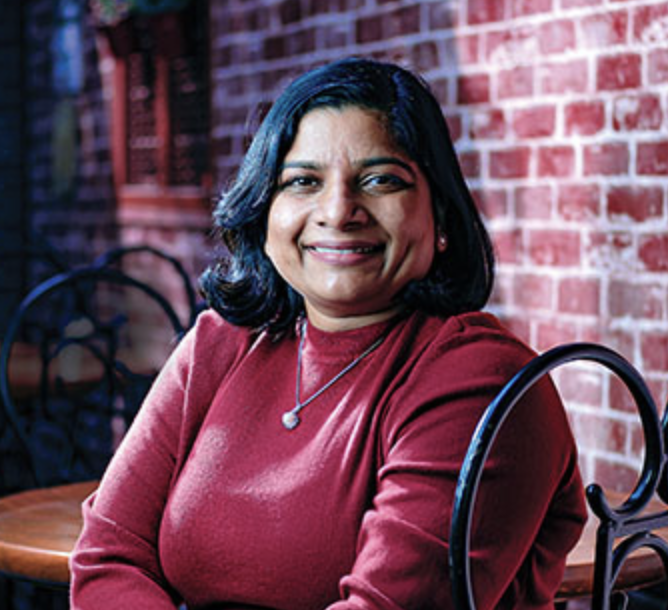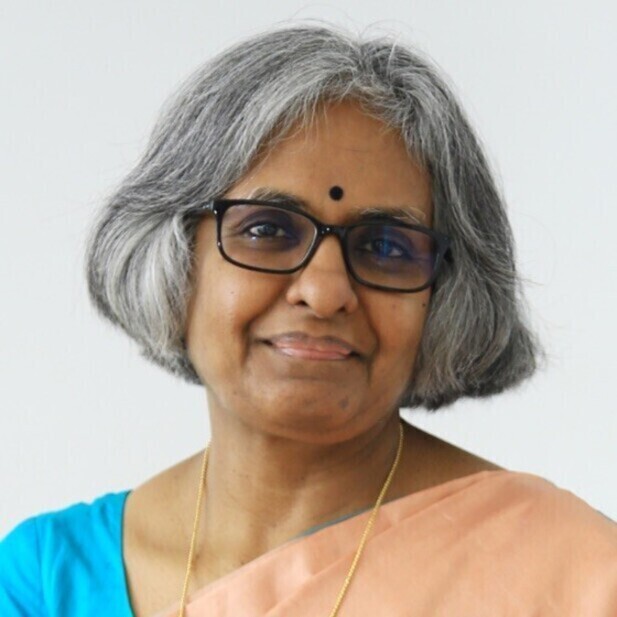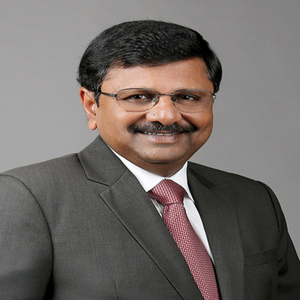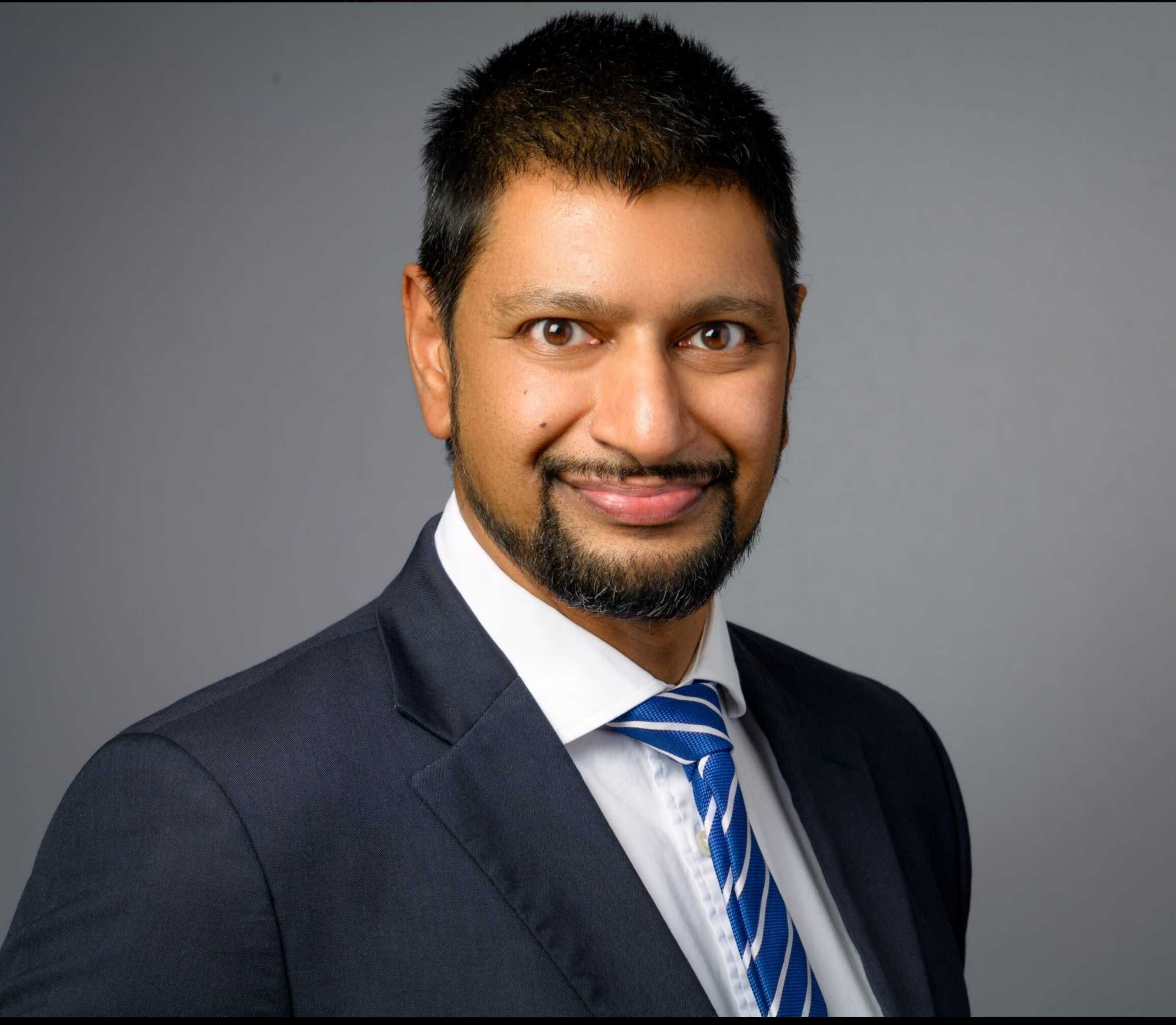In this episode of Nuclei's podcast, we are delighted to welcome Mr. Puneet Chhahira, a seasoned professional in the realm of banking technology and strategy, currently serving as part of the leadership team at Infosys Finacle. With over two decades of enriching experience in various roles within Infosys, Puneet brings a wealth of knowledge and insights into the dynamic landscape of fintech innovation.
In a candid conversation with Ankur Joshi, the CEO and founder of Nuclei, Puneet delves into his professional journey, from his early days in consulting to his current strategic role at Infosys Finacle. He shares valuable insights into the evolving landscape of banking technology, emphasizing the importance of differentiation and customer-centricity in driving innovation.
Moreover, Puneet provides thoughtful analysis on the emergence of Neo Banks and their potential impact on traditional banking models.
--Transcript Begins--
Ankur Joshi:
Hello Everyone. This is Ankur Joshi. I'm the founder and CEO of Nuclei. Welcome to the podcast. Nuclei is a fintech company where we collaborate with various banks to implement our products across multiple verticals within the banking sector. This podcast focuses on conversations with leaders in the industry, and today, I'm honored to have Puneet Chhahira from Infosys Finacle joining us. Puneet, thank you so much for taking the time to be here, and welcome to the podcast.
Puneet Chhahira:
Thank you, Ankur, for inviting me. It's my pleasure and privilege to join you today.
Ankur Joshi:
Absolutely. The pleasure is all ours. So, Puneet, before we delve into what you do at Infosys Finacle, what are the key problem statements you're aiming to address? I'd like to explore your background a bit further and understand where you're coming from. What is your background, and what were the key challenges you faced while growing up? Additionally, what were the inflection points and benchmark shifts that occurred in your journey? Anyone who has worked with you or looks up to you would definitely want to understand your background and see what they can replicate. Maybe gain some insights.
Puneet Chhahira:
Thank you, Ankur. Let me start with my professional journey, and then perhaps I'll delve a bit into my personal journey as well. Firstly, I've been with Infosys Finacle for over 17 years, which is quite a substantial period. Fortunately, I've had the opportunity to work in various roles. I began my journey at Infosys Finacle in a consulting role, then transitioned into product management, followed by taking on responsibilities in marketing. Subsequently, I moved into product and platform strategy. Presently, I'm responsible for the marketing platform strategy for the Finacle business at Infosys. Prior to that, I came from the financial services sector. My last assignment was with Bajaj Allianz.
I was fortunate to enter the insurance industry during its early days when it was opening up to private insurers. Those were incredibly exciting times, with unprecedented growth. We were expanding at an unheard-of rate, adding nearly four branches a month. It was an exhilarating period in the insurance sector. Before my stint at Bajaj Allianz, I pursued my master's in marketing and finance from Symbiosis Pune, preceded by computer science engineering. On a personal note, I grew up in Chandigarh. I was fortunate that almost my entire school education was in Chandigarh. My father worked for the Haryana Welfare Department, which is why Chandigarh became our home.
For the past 17 years, I've been in Bangalore. Before that, I've worked in Hyderabad, Mumbai, Kanpur, and spent some time in Mysore in between. Internationally, I've extensively traveled due to my role, with significant time spent in Singapore.
Ankur Joshi:
OK. Awesome. That's really good to know. You have spent a lot of time at Infosys. What's the key reason behind that? Like, what is it that's so different about Infosys? I know so many people who have served for 15-20 years at Infosys, and from knowing a few people personally, I understand the difference—the culture, not to mention the insanely beautiful campuses that Infosys has.
But what is it really about Infosys that ensures people stick around for so long?
Puneet Chhahira:
You know, some of what you already mentioned. I think it's an organization where the culture is extremely positive. I believe that's really the foundation, and a lot of credit goes to our founders. Our motto, "under promise, over deliver," genuinely has been the guiding principle of the organization. We have extremely humble and authentic leadership, which has been inspiring. Beyond the organization, in my own personal journey, the fact that over 17 years, I've had the opportunity to change roles—some of which have been extremely different—has been crucial.
Moving from consulting to product management to marketing to platform strategy, these opportunities have kept me engaged. Additionally, Finacle has been the most successful product offering from our country. So, in the technology space, being part of a product organization allows you to not only influence through your work but also improve the lives of many people the product touches. It offers a streamlined way for career evolution compared to being in a services business.
Over my journey, Finacle has introduced over a dozen new offerings, which has been another exciting aspect, as we are constantly working on new things. I would say these are some of the reasons. At the end of it, it's also about the purpose. Our organization's purpose has been to inspire better banking, better ways of consuming banking. The fact that our software is in 100 countries, touching the lives of over a billion people, with 1.7 billion accounts running on our software, presents both a big responsibility and a significant opportunity for us to do well. It's the association with that purpose that has kept me going, and there's always an unfinished agenda. So, I'm hoping there's more time to come.
Ankur Joshi:
That's really inspiring to hear. So, I mean, in your current role, specifically with respect to marketing and more with respect to the platform strategy, the role that you have taken up recently, right? What are the big challenges that you are trying to solve?
Puneet Chhahira:
Let's go one role at a time, starting with marketing. We're in a class-full situation now. The good news is that the Finacle business is incubated in an extremely respected and stable organization like Infosys. So, we have a great track record of delivering value through our products and services at Infosys. This is an incredibly good starting point for a business like ours.
Over the years, we've also built significant credibility for our business. Whether you look at customer experience and feedback or independent assessments, we've earned recognition. For instance, in the software industry, industry analysts' opinions are highly regarded. Finacle consistently performs well in core banking, corporate banking, and digital engagement offerings. We often find ourselves at the top in most quadrants or waves of similar assessments. Additionally, if you examine customer feedback, publicly available on various portals, you'll notice that while we receive balanced feedback like any software provider, it tends to be overwhelmingly positive. This positivity is largely due to the culture I mentioned earlier.
However, we know we can't rest on our laurels. There are many areas where we need to enhance our brand recognition. For example, our success in core banking has somewhat overshadowed our offerings in other areas, such as our digital engagement suite or corporate banking solutions. Thus, there's work to be done to promote these offerings. Similarly, our market share varies across different markets. In some, our market reach is extensive, while in others, it's relatively low. Hence, expanding our market share is a priority. Now, moving onto platform strategy. Over the years, our business model has evolved. Traditionally, we sold our software through licenses, with additional AMC on top, and offered implementation services either directly or through our SI partners. However, there's been a shift towards cloud and SaaS models. This necessitates a shift in our market messaging.
Additionally, we've made significant investments in the corporate and business banking space. While retail banking has historically been more prominent for software vendors and universal banks, we've seen considerable investment in enhancing the enterprise customer experience. This presents a significant opportunity for our business. However, we need to further enhance our brand recognition in this area and showcase how our solutions enable clients to create greater value for their stakeholders, including customers and investors, through better outcomes.
Ankur Joshi:
Awesome. So when we met earlier this week, we, of course, delved deep into corporate banking and its potential across the world. Over the years, the focus has predominantly been on retail banking for most banks. However, we're witnessing a shift across multiple geographies, with more and more banks focusing on corporates due to the higher ROI margins associated with it. Now, with respect to platform strategy, what are the other platforms you're looking at? It's a heavily discussed topic worldwide, as everyone aims to become a platform.
Amazon, Stripe—they're all striving to become platforms. However, very few truly succeed and have a global footprint. Finacle, of course, is one of the biggest success stories out of India. Are there other platforms you look up to that have performed exceptionally well across the world? These platforms could be from various industries, not necessarily from the BFSI sector.
Puneet Chhahira:
Yeah. I think, let me start by sharing, Ankur, that many times when we use the word "platform," we end up attributing different meanings to it simply because it's used rather loosely, and there's limited standardization. At our organization, we categorize platforms into four key buckets. Firstly, there are technology platforms. These are platforms you can use to build any software for any kind of business. For example, Java is a platform or our AI platform offered by Infosys. These platforms aren't necessarily used directly; they serve as the foundation for building business applications used by enterprises.
Secondly, there are application platforms. These platforms, like Finacle, involve creating business applications used by a variety of enterprises. They should ideally be consumed as a service in a software-as-a-service mode. Thirdly, there are business process platforms. These platforms involve consuming business services rather than just software applications. For instance, we acquired a mortgage processing platform in the Netherlands a couple of years ago. It serves over 50 banks, fintech firms, and mortgage providers, handling everything from origination to processing to collections as a service, incorporating both software and operational services.
Finally, there are multi-sided platforms, such as Uber and Airbnb, where multiple participants come together, and the platform acts as an integrator between banks and various service providers. Infosys has developed something similar with our trade platform. We operate across all these four domains with varying degrees of success and offerings. As a business, we're constantly seeking opportunities to create value. This is our approach at Infosys. Specifically, at Finacle, as I shared with you, our focus is on transitioning towards SAAS-based and cloud-based offerings instead of license-based ones. Moreover, we're working with our clients to enhance the value of our software, whether through extensive partnerships or by fostering ecosystem innovation, such as the work we do with you.
Our Fintech Connect platform is part of this strategy, aimed at bringing a broader ecosystem of innovation to our clients, rather than just offering Finacle or Infosys capabilities. There are various dimensions to this strategy, and we're actively investing in them to ensure we create value in line with the industry's evolving needs and expectations.
Ankur Joshi:
Absolutely. We are truly honored to be partners with Infosys on this, and we're eagerly looking forward to expanding across multiple markets with you. Thank you so much for that insightful description. It was really well-structured and provided clarity on how a platform is defined across various verticals.
Let me address another point that's been loosely discussed—Neo Banks.
There's a lot of noise surrounding them, and I believe you've also written about them in the past. However, despite the hype, we've been hearing for almost a decade now that Neo Banks will replace traditional banks. Personally, I haven't seen any Neo Bank significantly dent the market share of existing banks. While a few, like Nubank in Latin America and Revolut in Europe, have expanded the market and introduced new innovations and products, very few have made a substantial impact. I can't recall any that have truly made a dent.
So, my question is, do traditional banks really need to worry about Neo Banks disrupting their business? Secondly, what do Neo Banks need to do to differentiate themselves, considering many are built on top of banks' APIs and function primarily as front-end interfaces for customers? Lastly, are there any specific business areas from a bank's perspective that are at risk of being affected or impacted by Neo Banks? I apologize for the multi-part question, but please address whichever part you'd like.
Puneet Chhahira:
Sure, see, I'm no expert on Neo Banks or data protection in banks, but I'll share my perspective considering I have the opportunity to work with players on both sides in my role. First, I agree with your initial premise that no single Neo bank has made a significant dent in the market. However, I'd also like to point out that when you consider the variety of Neo banks emerging in different product-focused or customer segment-focused areas, collectively, they may start nibbling away at traditional banks' market share. Moreover, there's significant room for market expansion in many cases.
For instance, in growth markets like India, across various products such as deposits, lending, insurance, and wealth management, there's still a lot of untapped potential. So, in that sense, I believe there's space for both traditional banks and Neo banks—it's not an either/or scenario as it's sometimes portrayed. However, the key question remains: how can Neo banks differentiate themselves? In my opinion, differentiation needs to occur at three levels. Firstly, it's crucial to define who your target audience is and what your value proposition is. This is both important and challenging.
For example, I admire Neo banks that clearly define their target segments and focus on solving specific problems for those segments. They can do this more effectively than traditional banks because they can dedicate more time and attention to solving those problems. Therefore, Neo banks with a clearly defined purpose targeting specific segments are likely to be more successful. Secondly, the engagement aspect is extremely challenging to manage.
If you consider the example of UPI, there are nearly 5.9 billion transactions happening per month, almost touching 6 billion. There are over 60 apps, if I'm not mistaken, from both incumbent banks and Neo banks that facilitate UPI payments. Yet, for various reasons, over 80% of these transactions are carried out using Google Pay and PhonePe. Furthermore, platforms like PhonePe and Google Pay aspire to become marketplaces for financial services, extending beyond payments. For instance, on Google Pay, you can now invest in fixed deposits without ever visiting a branch, meeting a relationship manager, or accessing online banking. You're directly engaging with Google Pay to purchase a fixed deposit, and upon maturity, the funds are returned to your chosen funding account.
This represents a significant disruption, as even Neo banks face challenges from other players while attempting to disrupt traditional banks. This dynamic adds complexity and underscores the importance of genuine differentiation and focus on specific market segments and problems. Without a clear focus and passion for solving unique problems, differentiation becomes difficult. Additionally, there are challenges related to monetization, especially for lending-focused Neo banks. They may struggle, for example, if interest rates rise. Transitioning from a Neo bank to a deposit-taking institution, where permitted by regulatory mechanisms, highlights the differences in their financial books.
Lending without a solid deposit franchise is expensive and challenging. Despite these challenges, I'm excited about the opportunities in this rapidly evolving industry. Such rapid business composition hasn't been seen in our industry for quite some time, and we're still in the early stages. Therefore, I wouldn't commit to any definitive conclusions yet. The segment is continuously evolving.
Personally, I enjoy engaging with traditional banks, challenger banks, and Neo banks, many of whom are our clients. I'm eager to leverage my professional expertise and personal interest to contribute to the advancement of the industry. In a country like India, I believe there's room for everyone for now, but they must differentiate themselves.
Ankur Joshi:
You're absolutely right that it's not a zero-sum game, for sure. There is still a lot of untapped market depth and potential, which not even all traditional banks have capitalized on. That's where a particular Neo bank with a laser focus on a specific segment, geography, or product could excel by going deep into it and leveraging that opportunity. So, that's definitely a possibility. Absolutely. And it's not just for India or emerging markets; even in advanced, developed markets, there are opportunities waiting to be seized.
For instance, Revolut clearly recognized and capitalized on such an opportunity. However, it's important to note that it's not a zero-sum game. Although banks often express concerns about areas where Neo banks could potentially disrupt, I believe banks also need to step up, especially in terms of customer experience and engagement, where they traditionally haven't kept pace with tech companies. Absolutely. Puneet, I know we're short on time. My last question to you—this has nothing to do with what you do at Infosys Finacle—what is the kindest thing, or it could be multiple things, that anyone has done for you?
Puneet Chhahira:
As we started this conversation, we talked about covering a topic like this. Many things come to mind, but if I have to choose one, I think the kindest thing people around me have done is to allow me to pursue areas and take up responsibilities when I didn't have established credibility. To me, that's been a big, big act of kindness. In every role I undertook, I always felt it was my lifetime role. When I was in consulting, I enjoyed it the most; when I did product management, I felt that was what I wanted to do. Then marketing happened, and eventually, the product platform strategy role—all of them allowed me to engage with our clients and partners in different dimensions. That has been an extremely valuable journey for me to reflect on. I want to express my gratitude to all my mentors who allowed, encouraged, and sometimes even persuaded me to pursue these paths. I consider it the greatest blessing.
Ankur Joshi:
That's really nicely put because often people confuse money for wealth. But in the true sense, freedom to operate, freedom for your time, and your decision-making—those comprise true wealth, and that's what you really value over time. So, really nicely put, Puneet.
Thank you so much for being on the podcast today. We really appreciate it and thank you for giving us your time.
Puneet Chhahira:
Oh, it's my pleasure. Thank you so much for having me today, and I'm looking forward to building the business together.
Ankur Joshi:
Likewise, Puneet. Thank you. Take Care.
--Transcript Ends--




